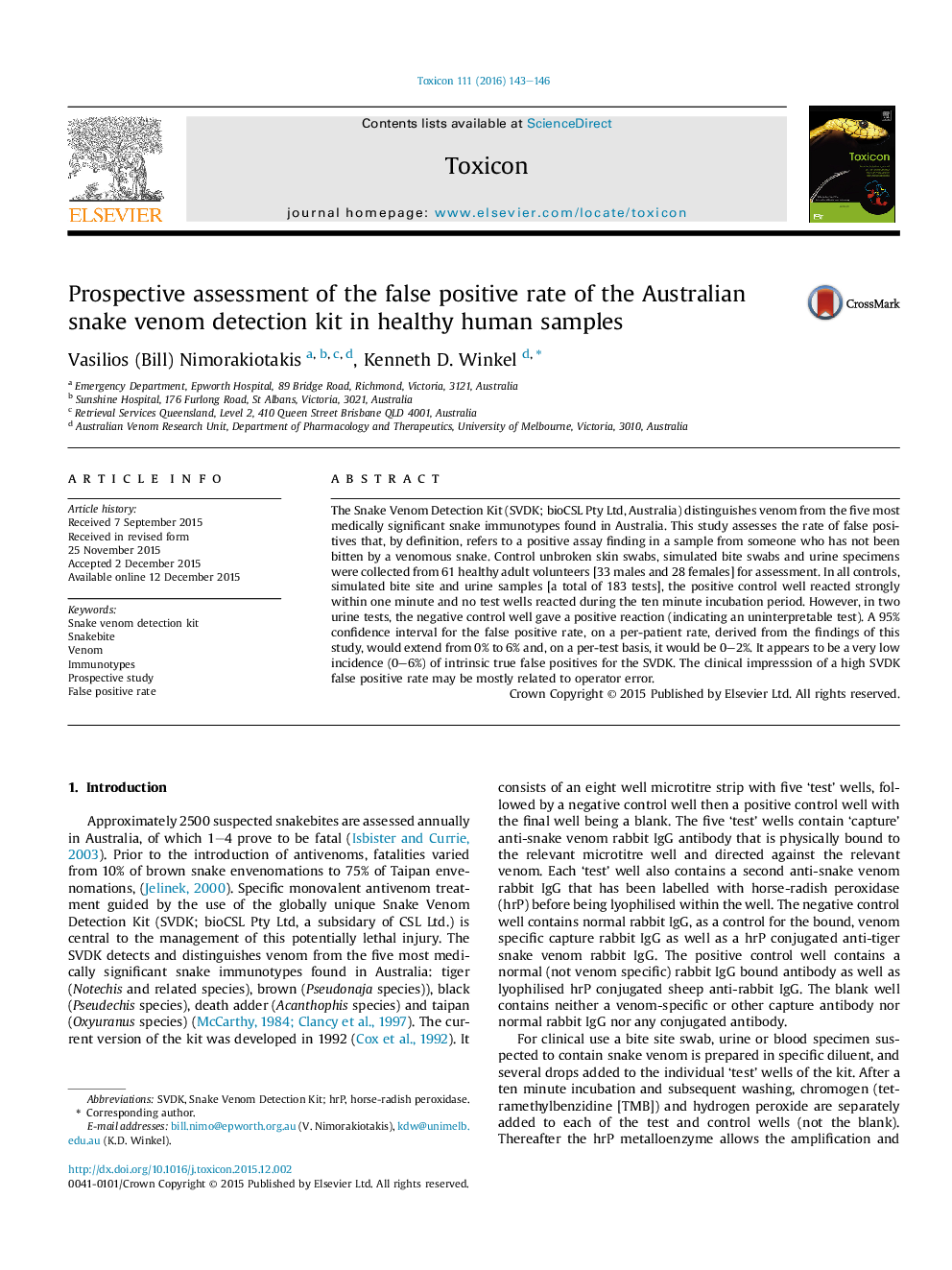| Article ID | Journal | Published Year | Pages | File Type |
|---|---|---|---|---|
| 2064063 | Toxicon | 2016 | 4 Pages |
Abstract
The Snake Venom Detection Kit (SVDK; bioCSL Pty Ltd, Australia) distinguishes venom from the five most medically significant snake immunotypes found in Australia. This study assesses the rate of false positives that, by definition, refers to a positive assay finding in a sample from someone who has not been bitten by a venomous snake. Control unbroken skin swabs, simulated bite swabs and urine specimens were collected from 61 healthy adult volunteers [33 males and 28 females] for assessment. In all controls, simulated bite site and urine samples [a total of 183 tests], the positive control well reacted strongly within one minute and no test wells reacted during the ten minute incubation period. However, in two urine tests, the negative control well gave a positive reaction (indicating an uninterpretable test). A 95% confidence interval for the false positive rate, on a per-patient rate, derived from the findings of this study, would extend from 0% to 6% and, on a per-test basis, it would be 0-2%. It appears to be a very low incidence (0-6%) of intrinsic true false positives for the SVDK. The clinical impresssion of a high SVDK false positive rate may be mostly related to operator error.
Related Topics
Life Sciences
Biochemistry, Genetics and Molecular Biology
Biochemistry, Genetics and Molecular Biology (General)
Authors
Vasilios (Bill) Nimorakiotakis, Kenneth D. Winkel,
